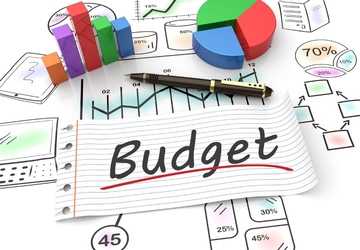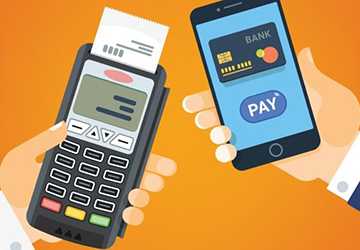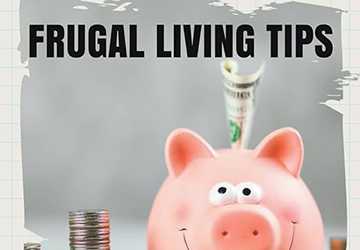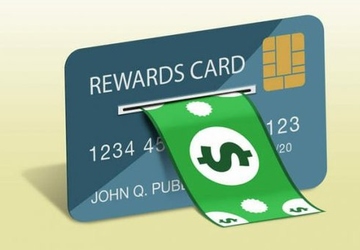3 Strategies to Reduce Debt Payments and Save $200 a Month
Feeling like you owe someone money puts a strain on not only your wallet but also your mental health. It deprives you of sleep; you wake up in the middle of the night wondering how you will pay for your next meal and the next day's bills.
Imagine how much lighter your debt burden will be and how much more you'll have in your pocket each month, $200.
This can lead to many benefits, including financial security and a healthy mindset.
In this blog post, we'll cover three effective strategies for reducing debt and saving a significant amount of money each month. These techniques are easy to understand, simple, and can be put into practice.
Now, let's examine how to start saving $200 a month and achieve the financial freedom you desire.
Why is debt reduction important?

Both are essential to long-term financial stability, so minimizing and controlling debt is crucial.
Reducing debt payments is not just about saving your hard-earned money; it's about saving your hard-earned money, and this has many advantages.
Another benefit is improving your creditworthiness, resulting in a better rating. As you gradually pay down your debt, your credit score automatically increases, reducing your credit utilization.
A good credit score can provide better interest rates on car loans, credit cards, and other loans, saving much money in the long run.
In addition, your overall expenses will be reduced, especially your debt repayments, so your disposable income will be higher.
This extra money can be used to establish an emergency fund or retirement plan or to live a more relaxed life.
Debt management also significantly impacts a person's well-being. Money problems are a common problem that can affect a person's physical and social well-being.
Debt is like a disease that slowly consumes a person. Therefore, you'll feel much better if you do everything you can to combat them. This can help reduce stress, improve sleep quality, and instil a positive outlook.
3 Strategies to Reduce Debt Payments and Save $200 a Month
Now that you understand the benefits of reducing your debt let's look at three practical and effective ways to help you reduce your debt and save more each month.
Strategy 1: Consolidate Your Debt
Debt consolidation is indeed a great tool to reduce your monthly debt payments.
Combining a large number of high-interest debts into one loan with a lower interest rate can help you reduce your debt and, most importantly, save you money.
You can do a personal loan, a balance transfer credit card, a home equity loan, or a debt consolidation loan. The advantage is that the bills are consolidated, and you only have to pay one monthly instalment instead of multiple instalments.
Your lower interest rate means you pay less interest on your loan, which means more money will go towards paying down the principal.
This can be beneficial because it will cost you in the long run, saving you a lot of money.
Strategy 2: Negotiate a Lower Interest Rate
Negotiating a lower interest rate with your creditors has proven to be the least effective way to reduce your debt repayments.
High interest rates increase your monthly payments to pay off your debts, making it difficult.
You can negotiate with your creditors and ask them to lower your interest rate.
To support your case, expect to be asked about your past payment history and current financial situation.
Therefore, if you have good credit and always pay on time, your creditors are more likely to be flexible with you.
It may not seem like much, but even a small change in interest rates can greatly affect your monthly debt.
Strategy 3: Create a budget and stick to it

It is important to create a plan for the amount you want to spend and stick to it in order to manage your debt effectively.
It is important to monitor your income and expenses to identify areas that can be adjusted to free up money to pay off your debts.
First, it is important to review all sources of income and monthly expenses. This will help people determine how much they can spend on different needs.
Find areas where you can limit your spending and save money, such as non-essential products and services, dining out, and other entertainment options.
These are often expenses that can be reduced so that the money saved can be used to pay down debt.
Use the extra money cut from your budget to pay down debt, starting with debts with higher interest rates.
This way, you can ensure that you pay off your loans faster and save money on interest that will accrue later.
Start reducing your debt repayment today
These three strategies include consolidating outstanding debts, negotiating lower interest rates, and creating a budget to reduce monthly payments and save money.
There is no reason not to take control of your financial future.
Start your new life now and free yourself from all the stress and dependency that comes with heavy debt.
Many use these techniques to reduce expenses and save hundreds of dollars monthly.
You can also benefit from this news and take action now to get the same results.
Reduce costs and eliminate debt to open the door to a better financial future.
Frequently Asked Questions
Q: How can I manage my debt and simultaneously reduce my payments to multiple companies and banks?
A: Learn about the options available, such as B. Personal loans, balance transfer credit cards, or home equity loans. Compare the options available to choose the one with a lower interest rate and more favorable terms to secure debt consolidation and reduce monthly payments.
Q: What keywords or questions might be helpful when trying to negotiate a lower interest rate with a creditor?
A: Express your real need for a lower interest rate and explain how it will help you repay your borrowed amount. Emphasize your payment history and repayment ability related to credit card use. It is necessary to be polite, but don't be shy—let the other party hear your needs.
Q: How can I plan a reasonable budget to help me meet my debt obligations?
A: First, write down everything that makes you money and everything that costs you money. Find ways to reduce your expenses and use the money you save to pay off your debt. There are many ways to create a budget, and you can use specific tools or apps to help you monitor your spending habits.





